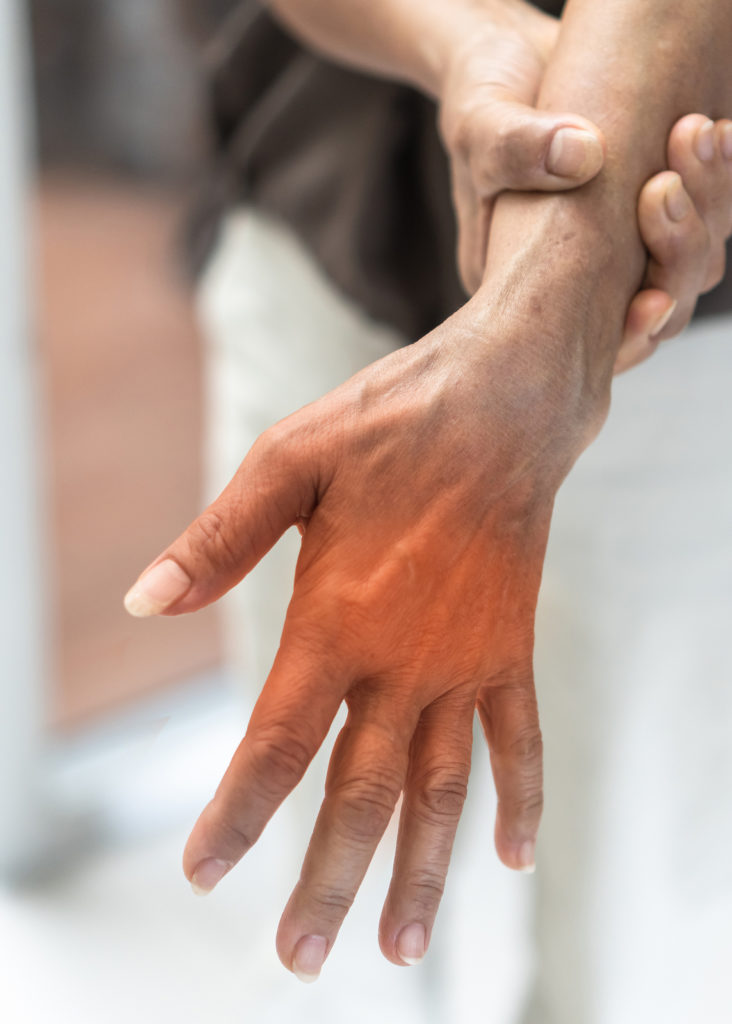Neuropathy is a medical condition that results in numbness and sharp pain in the hands and feet. These troubling symptoms are caused by damage to the peripheral nerves. There are a number of things that can cause this nerve damage including diabetes, infections, tumors, autoimmune diseases and previous injuries. Alcohol consumption, vitamin deficiencies and certain medications can exacerbate your neuropathy symptoms if you are not careful. Since nerve damage can be nearly impossible to reverse, it is important to start treatment as soon as possible. These are the seven best ways to treat your neuropathy.
Pain Relievers
The most basic form of treatment for neuropathy is pain medication. You will start out with trying over-the-counter pain relievers. These pills have been known to mask mild symptoms of neuropathy. The doctor may prescribe painkillers if you are experiencing a lot of pain from your peripheral nerve damage. Since these medications can be very addicting, it is best to only take them when absolutely necessary.
Topical Creams
There are several different topical creams you can use to treat your neuropathy. These creams are applied directly to your hands and feet. Most of these creams contain capsaicin, which works to help stimulate the nerves. There will be some mild skin burning when first applying the capsaicin cream, but you will gradually get used to it over time. If you are unable to handle the skin irritation, then you need to stop using the cream immediately.
Anti-Seizure Medication
It may not seem like a logical choice, but medication used to stop seizures can also help improve your neuropathy. These medications are designed to calm the nerves. In addition to reducing seizures, this calming of the nerves also helps eliminate pain for anyone dealing with neuropathy. The most common anti-seizure medication used for neuropathy is gabapentin. This can be a very effective treatment if your neuropathy is caused by diabetes or shingles.
Lifestyle Changes
Maintaining a healthier lifestyle can go a long way to improving your neuropathy. Since a lack of vitamins is one of the main causes of nerve damage, it is key to eat a healthy diet. A nutritious diet will also help keep your blood sugar under control, which is very important for diabetic neuropathy. A few other things you can do to live a healthier life include exercising on a regular basis, limiting alcohol consumption and avoiding cigarettes. The exercise can be something as simple as walking around the block a few times a week.
Physical Therapy
If your neuropathy is starting to cause major muscle weakness, then you will likely need to add physical therapy to the treatment plan. The exercises and stretches done during physical therapy are all designed to strengthen your muscles. In order to get the most out of this treatment, you will need to regularly attend therapy several times a week. They will also likely want you to perform some of the exercise during your free time at home.
Nerve Stimulation
Electronically stimulating the nerves is a great way to reduce your neuropathy pain because it prevents the nerves from sending pain signals to the brain. Nerve stimulation is done by placing electrodes directly on your hands or feet. Gentle electric currents are sent to the body once the machine is activated. This process will not cause any pain. In order to get positive results, you will have to stimulate the nerves for 30 minutes every day for one month. This will be done at home using a small portable machine.
Surgery
The most extreme form of treatment for neuropathy is surgery. This is usually only done if a tumor or something else is placing a lot of pressure on the nerves. The goal of the surgery is to release the pressure on the nerves. Once the nerves are no longer placed under a lot of pressure, all of your problematic neuropathy symptoms should go away.



